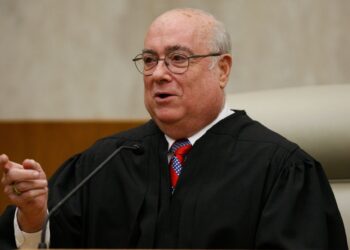
President Biden flexed his clemency power to pardon 39 people for nonviolent crimes and commute the sentences of nearly 1,500 individuals who were transferred from prison to home confinement during the COVID-19 pandemic, the White House announced Thursday.
The move comes amid a wave of pressure from Democrats on Biden, 82, to tap into his nearly unlimited clemency power ahead of his White House departure. It was the largest presidential act of clemency on a single day in modern history, according to his administration.
“America was built on the promise of possibility and second chances,” Biden said in a statement. “I have the great privilege of extending mercy to people who have demonstrated remorse and rehabilitation, restoring opportunity for Americans to participate in daily life and contribute to their communities.”
“I will take more steps in the weeks ahead. My Administration will continue reviewing clemency petitions to advance equal justice under the law.”
At the start of the month, Biden issued a very controversial “full and unconditional pardon” of his troubled son Hunter that stretched nearly 11 years and neutralized two forthcoming criminal sentencings he faced this month.
Biden and the White House had insisted for more than a year that clemency for his troubled son was off the table. Amid the blowback against the president for going back on his word, Democrats began making public pleas for him to use that pardon power for other Americans.
“During his final weeks in office, President Biden should exercise the high level of compassion he has consistently demonstrated throughout his life, including toward his son, and pardon on a case-by-case basis the working-class Americans in the federal prison system whose lives have been ruined by unjustly aggressive prosecutions for nonviolent offenses,” House Minority Leader Hakeem Jeffries (D-NY) urged the president in a statement last week.
At least two Democrats — Sens. John Fetterman (D-Pa.) and Joe Manchin (D-W.Va.) — esuggested that the president should also pardon President-elect Donald Trump.
The flurry of commutations announced Thursday applied specifically to individuals who finished off at least one year of home confinement. Prisons had become hotbeds of the COVID-19 respiratory virus, which is why under the CARES Act, select prisoners were moved to home confinement.
The 39 individuals who obtained pardons from the president had a range of non-violent crimes such as drug offenses and included veterans, parents and other “engaged members of their communities,” per the White House.
For example, among those who received clemency from Biden is a woman who spearheaded a response team during natural disasters, a decorated military veteran, a church deacon who helped individuals with drug addictions and a doctoral student in the biosciences, per a readout from the White House.
Those commutations came on the heels of some GOP lawmakers in Congress mulling legislation demanding they be sent back to prison, the New York Times reported.
Democrats generally hailed the development and encouraged Biden to dole out additional clemencies.
“I have long advocated for criminal justice reform to address these inequities and commend President Biden for this act of mercy and for his leadership,” outgoing Senate Judiciary Chairman Dick Durbin (D-Ill.) said in a statement.
Prior to the announcement Thursday, former President Barack Obama had the largest single-day clemency push with 330 just prior to his White House departure.
Biden had generally lagged behind his predecessors on the pardon front.
Before Thursday, the commander-in-chief had only dished out 135 commutations and 26 pardons from his presidency through Dec. 5, per data from the Office of the Pardon Attorney, a total of 161 acts of clemency.
Typically the Office of the Pardon Attorney under the Justice Department advises the president on cases to wield clemency, though it was caught off guard by the pardon of Hunter Biden, one source told Politico.
Getty Images
For comparison, Trump had granted clemency on 238 occasions, including 94 commutations and 144 pardons, according to the Office of the Pardon Attorney. Over the course of eight years, Obama granted clemency 1,927 times, including 212 pardons and 1,715 commutations, according to that dataset.
Biden had received over 33,149 commutation and 3,395 pardon requests throughout the course of his presidency through Dec. 5, per that dataset.
In addition to run-of-the-mill pardons, Biden and his team are also reportedly contemplating the use of controversial preemptive pardons to protect key figures such as former COVID-19 czar Dr. Anthony Fauci, former Rep. Liz Cheney (R-Wyo.), former Chairman of the Joint Chiefs of Staff Gen. Mark Milley and others from Trump’s potential wrath once he roars back into the White House.
Some Democrats have also fretted that the broad use of his pardon power to make Hunter Biden’s firearm and tax convictions vanish could bolster Trump’s arguments for using clemency in similar manners.
“The argument is one that I think many observers are concerned about. A president who ran to restore the rule of law, who has upheld the rule of law, who has really defended the rule of law kind of saying, ‘Well, maybe not right now,’” former White House senior adviser Anita Dunn told Politico calling the pardon of Hunter Biden “an attack on our judicial system.”
























